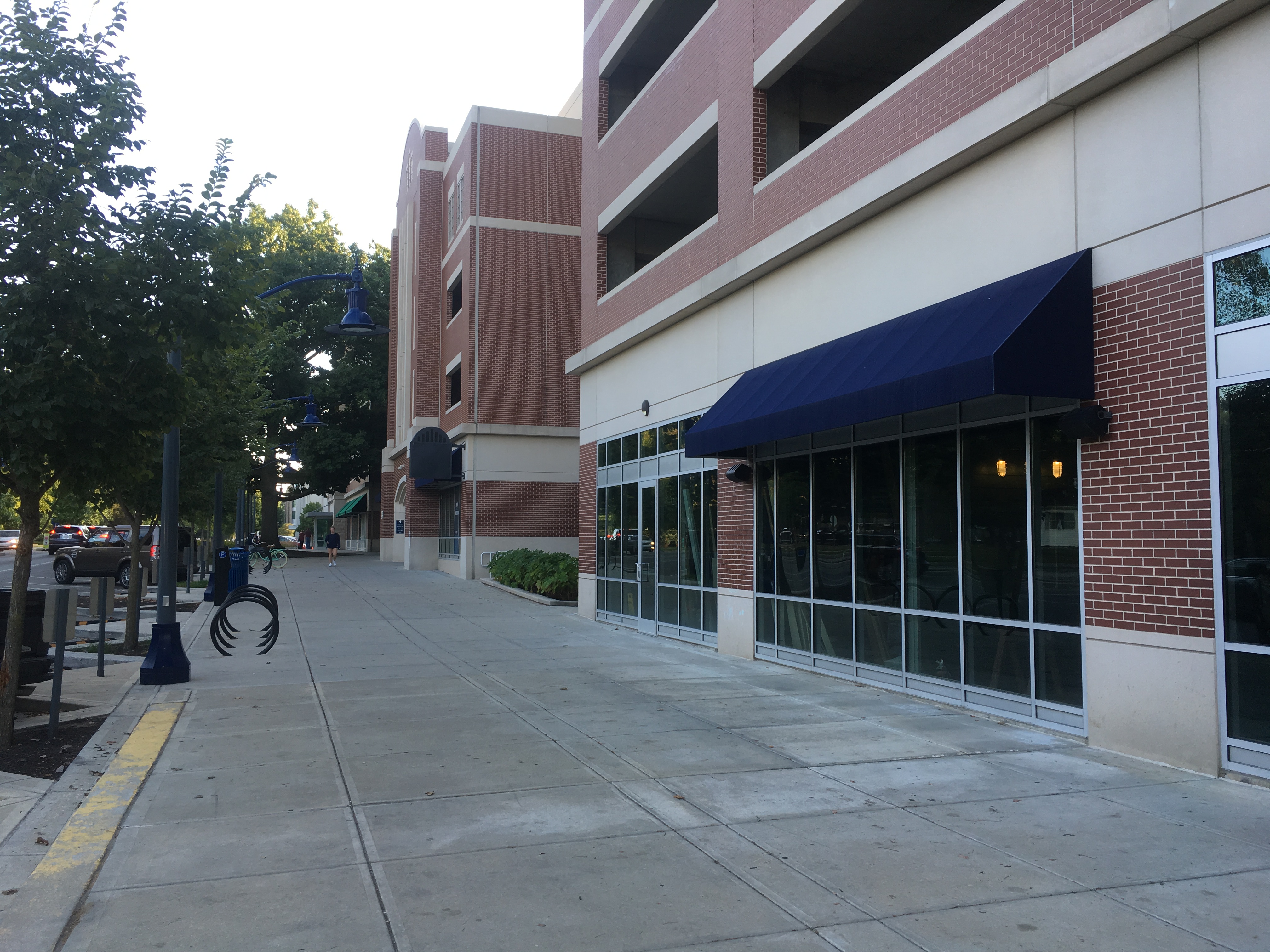Photo by Nate Lemen.
ZACHARY GOSSETT | OPINION COLUMNIST | zgossett@butler.edu
I, like probably every Butler student, am excited that Chatham Tap is going to move onto campus soon enough. However, at the same time, I worry that the past will repeat itself — that, in a year or so, we will have three empty storefronts again. But even if they manage to avoid that fate, the parking garage still has two open spots. These vacancies present an opportunity: Butler should put student-run businesses in the parking garage’s empty storefronts.
The new Lacy School of Business building helps empower entrepreneurship on campus. Inside the new building there is already the Small Business Development Center.
Hessamoddin Sarooghi, assistant professor for entrepreneurship and innovation, said there will be a Real Business Experience store. An Entrepreneurship Center, which will coordinate and provide support to student businesses, might also open.
Nevertheless, some products or business models are not well suited for the currently limited space.
Made by Murph — ran by Amanda Murphy, a junior youth and community development major — provides handcrafted apparel like scrunchies and headbands from repurposed fabric. Made by Murph is amongst the most recognizable student-run businesses on Butler’s campus; however, she would not benefit by the new RBE store, as her business was started outside of the university’s course.
Made by Murph depends on the connections she makes with her customers and the community to sell her handmade products. She fuels these interactions by hosting regular pop-up sales at Starbucks — the only place to have them.
“Table space is kind of competitive when it comes to booking around different clubs and RBE projects,” Murphy said.
Josh Hall, a junior marketing major, also found space to be a huge constraint on the success of his RBE business, Barbers2Butler. Unlike Murphy, his business, which brought students from the Paul Mitchell school to provide beauty services to Butler students, needed a large room to provide these services.
“That was the hardest thing, finding that space to operate and finding it in a place where people actually want to come,” Hall said. “Not too many people want to come to the third floor of Jordan.”
While their needs are different, neither of their businesses benefit from the opportunities presented by the new Lacy School of Business building so far, which is why they still need more space to operate. Considering the abundance of retail space in the parking garage, Butler should open this space up to student-run businesses.
Subsidized on-campus retail space for student-run businesses is not a new concept — other universities have been doing it for years. In 2015, a student at Syracuse University launched Pop↑, which gives small student-run businesses the ability to sell in a dedicated location. At Washington University in St. Louis, the Student Entrepreneurial Program offers subsidized retail space for students to run an on-campus business. Both of these schools embrace the sentiment of the RBE program, but they allow student business to flourish longer by giving them a dedicated permanent space and support.
Without a doubt, starting a program that gives students access to a retail space would take time and careful planning; it would also face liability and financial issues. Such a program, while intricate and challenging, would nonetheless be incredibly rewarding. These businesses would also give Butler students an even more elaborate opportunity to learn how to run a business, and it may just bring more people onto the campus.
I was sad to see these restaurants close, but the space they left behind gives us the chance to do something extraordinary: allow student businesses to prosper in a real-world environment.



